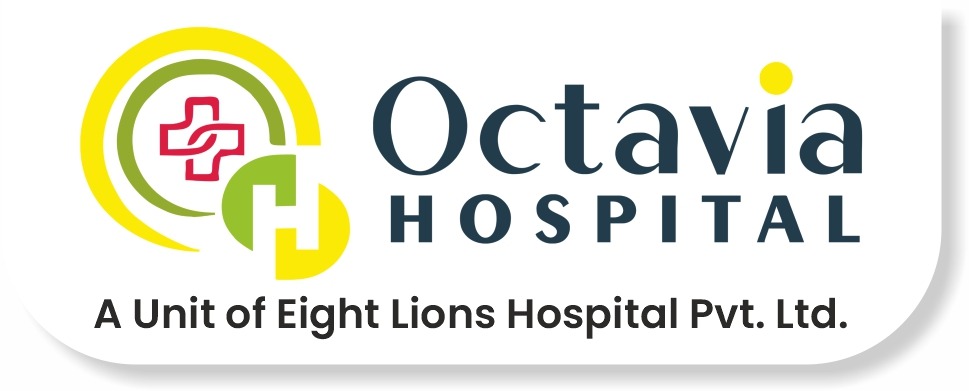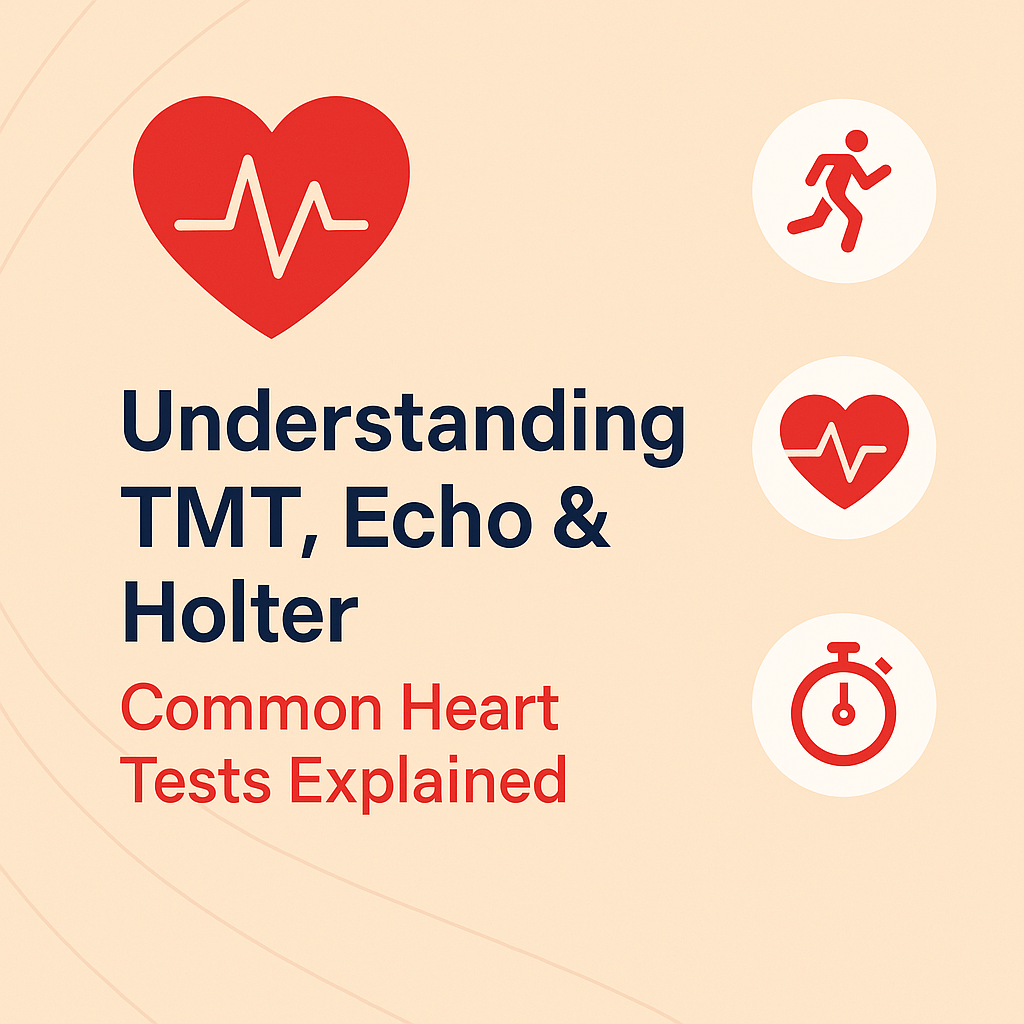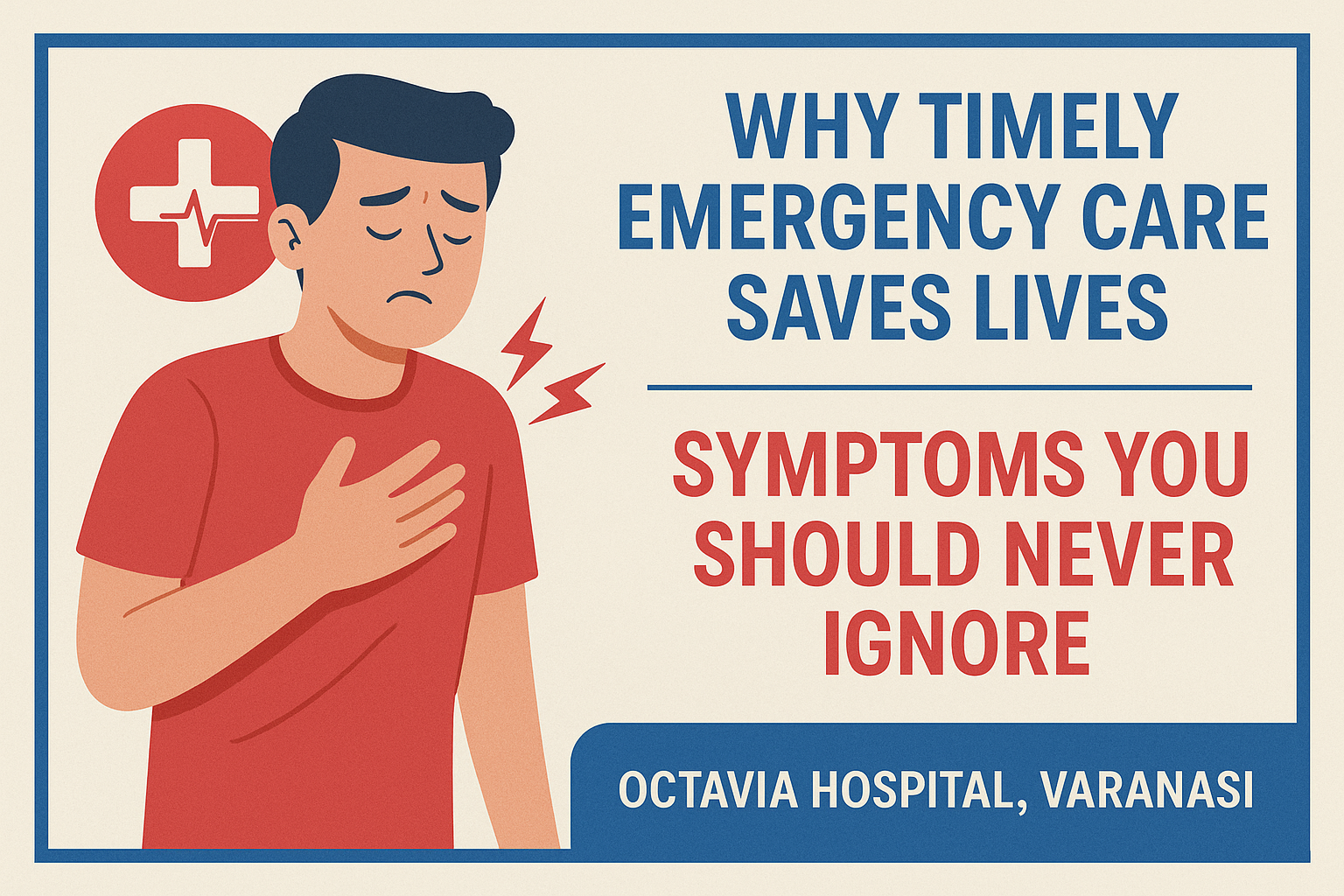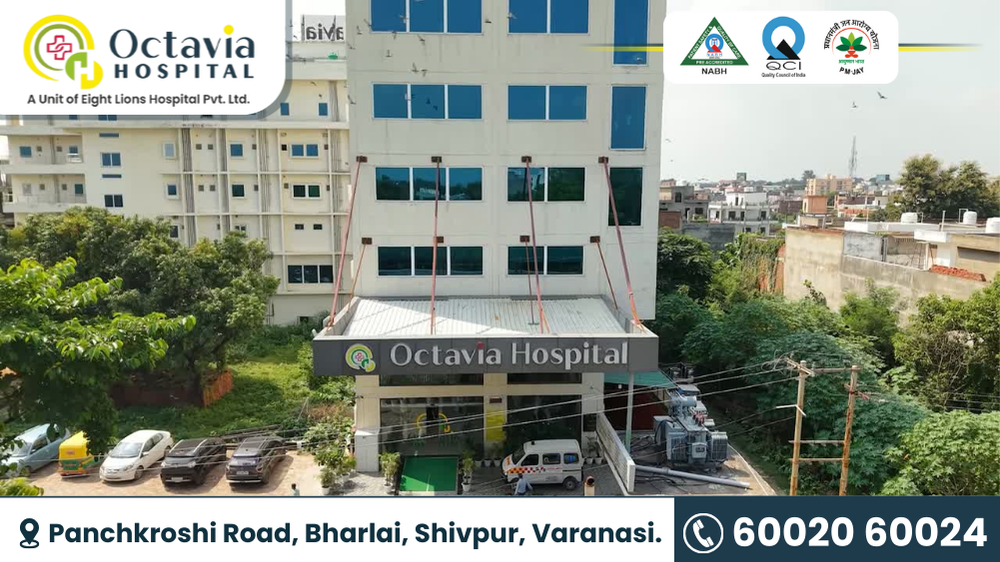When your doctor says, “We need to run some heart tests,” it’s natural to feel anxious—especially if you’ve never had them before. But the good news is: these tests are non-invasive, painless, and can reveal crucial information about your heart’s health.
In this blog, we’ll explain three common cardiac tests—TMT, 2D Echo, and Holter Monitoring—so you know what they are, why they’re important, and what to expect.
1. TMT (Treadmill Test) – Cardiac Stress Test
What is TMT?
The Treadmill Test (also called a Stress Test) is used to evaluate how your heart performs under physical stress. It helps detect blockages, chest pain causes, and coronary artery disease.
How is it done?
You walk on a treadmill while your ECG, heart rate, and blood pressure are continuously monitored. The treadmill speed and incline gradually increase.
Why is it done?
- To detect reduced blood flow to the heart.
- To monitor exercise tolerance.
- To help diagnose heart disease or unexplained chest pain.
What to Expect:
The test takes 15–20 minutes. Wear comfortable clothes and walking shoes. Slight tiredness afterward is normal.
2. Echo (2D Echocardiography) – Ultrasound of the Heart
What is an Echo Test?
A 2D Echo is a painless ultrasound that shows the structure and function of your heart in real time. It’s one of the most common tests to assess heart health.
How is it done?
You lie on a bed while a technician moves a probe on your chest with gel. The probe uses sound waves to generate live images of your heart.
Why is it done?
- To evaluate heart chambers and valves.
- To check for congenital heart defects or heart failure.
- To assess Ejection Fraction (EF)—your heart’s pumping efficiency.
What to Expect:
It takes around 15–30 minutes. There’s no radiation, and no special preparation is needed.
3. Holter Monitoring – 24-Hour Heart Rhythm Test
What is Holter Monitoring?
It’s a portable ECG that records your heart activity continuously for 24–72 hours. It helps detect irregular heartbeats (arrhythmias) that may not show up during a brief clinic ECG.
How is it done?
Electrodes are placed on your chest and connected to a small recording device you wear on a belt or shoulder strap. You continue your daily activities as normal.
Why is it done?
- To identify irregular heart rhythms.
- To investigate symptoms like palpitations, dizziness, or fainting.
- To monitor your heart after a heart attack or surgery.
What to Expect:
You may need to keep a diary of your activities and symptoms during the test. Do not get the device wet.
When Should You Get These Heart Tests?
Your cardiologist may recommend a TMT, Echo, or Holter Monitor if you have:
- Chest discomfort or tightness
- Shortness of breath or breathlessness
- High blood pressure or diabetes
- Palpitations or fluttering heartbeat
- Unexplained fainting or dizziness
- Previous history of heart attack or stroke
Expert Heart Care at Octavia Hospital, Varanasi
At Octavia Hospital, Bharlai, Shivpur, Varanasi, we offer all these heart tests under one roof, using the latest diagnostic technology and guidance from expert cardiologists. Whether you’re looking for routine heart screening or post-treatment monitoring, our team is here to support your heart health every step of the way.
Book Your Appointment Today
Octavia Hospital, Bharlai, Shivpur, Varanasi
Contact: 60020 60024
Early diagnosis can save lives—don’t delay your heart check-up!






